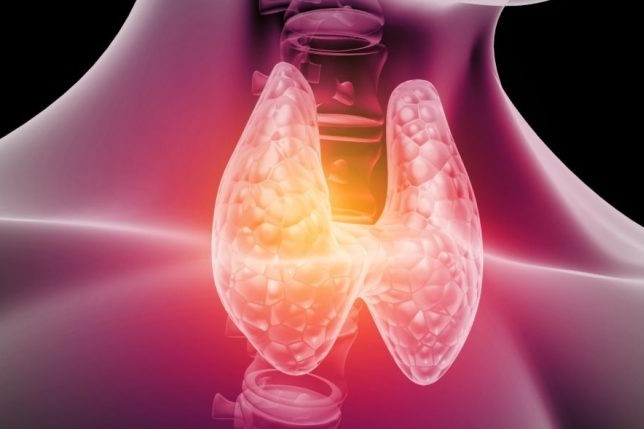
Feeling cold: this could be a symptom of hypothyroidism
Let’s talk about hypothyroidism: sometimes we may experience a constant feeling of cold, even when the weather conditions or our health in general would not justify this perception. This is particularly true among women and older people
Cold: when is it hypothyroidism?
Between the larynx and the trachea, in the lower front part of the neck, is the thyroid, an endocrine gland that is essential for ensuring and maintaining the good health of our organism.
One of its key functions, under the control of the pituitary gland, is to produce hormones that regulate metabolism and thermogenesis, the production of body heat.
When the thyroid gland is not functioning properly, it can lead to hypothyroidism, a condition that reduces the amount of thyroid hormones produced and, consequently, increases sensitivity to cold.
What’s more, this perception is often accompanied by other symptoms such as tiredness or general bloating.
What is hypothyroidism?
When the thyroid gland is not working properly, there are two main disorders: hypothyroidism and hyperthyroidism.
Hypothyroidism is characterised by a reduction in the normal production of thyroid hormones.
Reduced synthesis of these hormones has a negative impact on the function of peripheral organs and tissues.
Thyroid hormones contribute to the development of the nervous system, the functioning of the basal metabolic rate and the cardiovascular system, the balance of lipid metabolism, and the maintenance of proper sleep patterns.
Hypothyroidism: symptoms
The manifestations of hypothyroidism vary depending on the age at which the disease occurs, but also on its duration and severity.
Symptoms include
- intolerance to cold
- difficulty concentrating
- tiredness
- excessive muscle weakness;
- weight gain;
- swelling of the face;
- dryness of the skin.
At the same time, other symptoms may also develop, such as:
- constipation;
- slow heartbeat;
- irregular menstrual cycle in women.
Hypothyroidism can also affect mood.
What are the causes of hypothyroidism?
Hypothyroidism can be of various kinds.
In some cases, it may be present from birth – and therefore be congenital.
In other, more common cases, hypothyroidism develops in adulthood, often as a result of certain triggers, such as:
- autoimmune thyroiditis;
- therapies such as radioactive iodine and drugs such as amiodarone;
- surgical removal of the thyroid gland.
Diagnostic tests for hypothyroidism are the same as for thyroid function (TSH, FT4 and specific autoantibodies) and thyroid ultrasound.
Hypothyroidism: the importance of drug therapy
Hypothyroidism, if not treated properly, can greatly worsen the patient’s quality of life.
Treatment for hypothyroidism is pharmacological and substitutive, and involves taking the main thyroid hormone, levothyroxine.
The dosage of the drug depends on the patient’s clinical condition and may change over time, but from the moment therapy begins, it will be taken for the rest of the patient’s life.
The therapy helps to rebalance the activity of the thyroid gland, which in turn improves the patient’s quality of life and mood.
Can hypothyroidism be prevented?
Hypothyroidism cannot be prevented, but important steps can be taken to help the thyroid function correctly: firstly, attention must be paid to diet, keeping it healthy and correct, with an adequate intake of iodine.
Read Also:
Emergency Live Even More…Live: Download The New Free App Of Your Newspaper For IOS And Android
Thyroid Nodule: Signs Not To Be Underestimated
Thyroid: 6 Things To Know To Get To Know It Better
Thyroid Nodules: What They Are And When To Remove Them
Thyroid, The Symptoms Of A Malfunctioning Thyroid Gland
Thyroid Nodule: What Is It And What Are The Symptoms?
What Should Be In A Paediatric First Aid Kit
Symptoms And Treatment For Hypothyroidism


